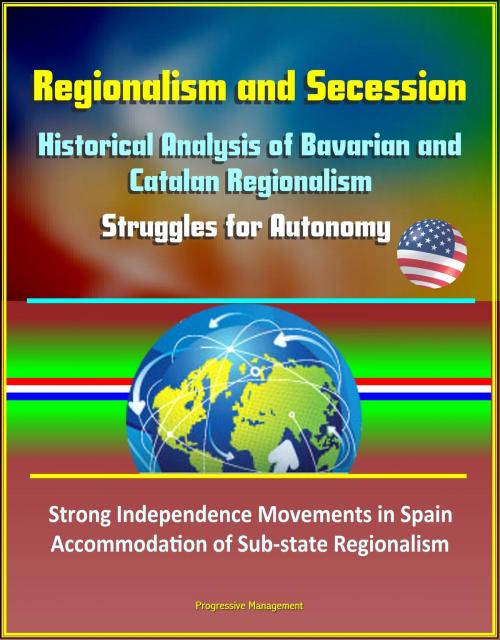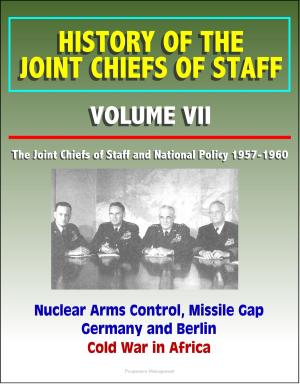Regionalism and Secession: Historical Analysis of Bavarian and Catalan Regionalism, Struggles for Autonomy, Strong Independence Movements in Spain, Accommodation of Sub-state Regionalism
Nonfiction, History, Spain & Portugal| Author: | Progressive Management | ISBN: | 9781370572328 |
| Publisher: | Progressive Management | Publication: | October 13, 2017 |
| Imprint: | Smashwords Edition | Language: | English |
| Author: | Progressive Management |
| ISBN: | 9781370572328 |
| Publisher: | Progressive Management |
| Publication: | October 13, 2017 |
| Imprint: | Smashwords Edition |
| Language: | English |
Catalonia and Bavaria today cling tightly to their linguistic distinctiveness, their cultural traditions, their culinary specialties, and their political particularity. Even after the passage of some centuries, these regions have not yet amalgamated into the nation states that contain them. And yet, Bavaria's stubborn regionalism does not translate into any real longings for secession, whereas many Catalonians struggle actively and adamantly for autonomy. Why are there strong independence movements in Spain, but not in Germany? How have state formation and the relationship between the center and the region affected independence movements? This study provides a historical analysis of Bavarian and Catalan regionalism and argues that autonomy mitigates secession if the predominant state has accommodated sub-state regionalism. This study explains that the EU can either strengthen or weaken regional governments, depending upon the nature of the relationship between the regional governments and their associated national government. This study argues that the security of both a newly independent state and its parent government is worse off in the short term; the severity of the security situation depends on the nature of the divorce.
Nationalism as guiding political idea is alive and well in a united Europe, which in the year 2015 shows troubling signs of a return to the bad old ways of the 19th and the 20th centuries. The character and nature of nationalism pose a challenge for students of security studies unfamiliar with how nation states have developed from their origins in the pre modern political order. The 18 September 2014 Scottish referendum on independence, spearheaded by the Scottish Nationalist Party, is but one recent example of its continued relevance. The violent fate of eastern Ukraine and claims of the vitality of "New Russia" in the year 2014 are yet another. Nationalism continues to work in different ways in different parts of Europe, however—even among places with comparable experiences of thwarted or deferred national independence which nonetheless in the present and recent past have not garnered headlines in US defense circles as has been the case recently in Eastern Europe. Yet these other examples are compelling and require analysis.
Catalonia and Bavaria today cling tightly to their linguistic distinctiveness, their cultural traditions, their culinary specialties, and their political particularity. Even after the passage of some centuries, these regions have not yet amalgamated into the nation states that contain them. And yet, Bavaria's stubborn regionalism does not translate into any real longings for secession, whereas many Catalonians struggle actively and adamantly for autonomy. Why are there strong independence movements in Spain, but not in Germany? How have state formation and the relationship between the center and the region affected independence movements? This study provides a historical analysis of Bavarian and Catalan regionalism and argues that autonomy mitigates secession if the predominant state has accommodated sub-state regionalism. This study explains that the EU can either strengthen or weaken regional governments, depending upon the nature of the relationship between the regional governments and their associated national government. This study argues that the security of both a newly independent state and its parent government is worse off in the short term; the severity of the security situation depends on the nature of the divorce.
Nationalism as guiding political idea is alive and well in a united Europe, which in the year 2015 shows troubling signs of a return to the bad old ways of the 19th and the 20th centuries. The character and nature of nationalism pose a challenge for students of security studies unfamiliar with how nation states have developed from their origins in the pre modern political order. The 18 September 2014 Scottish referendum on independence, spearheaded by the Scottish Nationalist Party, is but one recent example of its continued relevance. The violent fate of eastern Ukraine and claims of the vitality of "New Russia" in the year 2014 are yet another. Nationalism continues to work in different ways in different parts of Europe, however—even among places with comparable experiences of thwarted or deferred national independence which nonetheless in the present and recent past have not garnered headlines in US defense circles as has been the case recently in Eastern Europe. Yet these other examples are compelling and require analysis.















